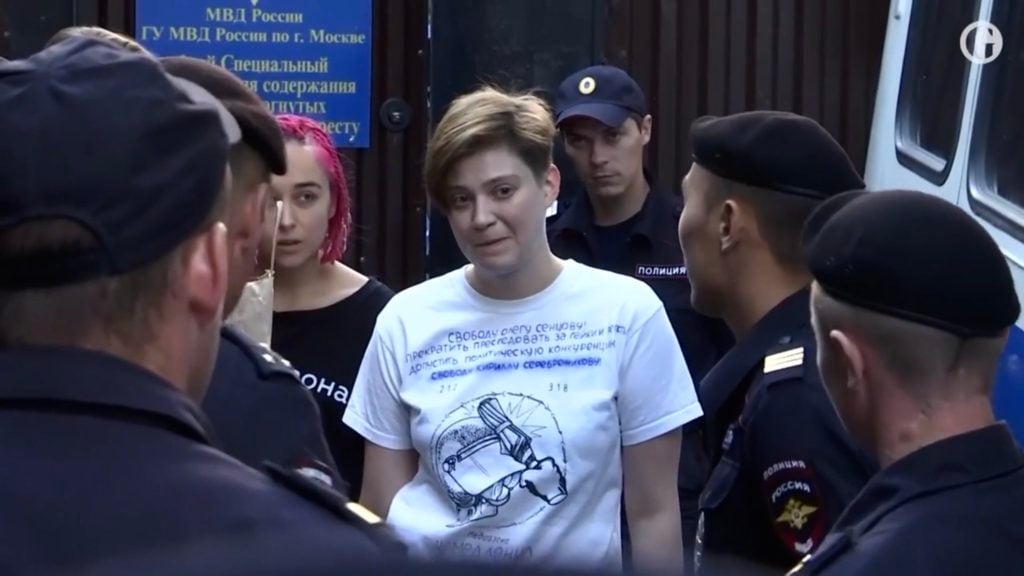Art World
Pussy Riot Members Who Protested at the World Cup Are Freed—Then Immediately Arrested—Then Freed Again
Police were waiting for the protesters outside the detention center.

Police were waiting for the protesters outside the detention center.

Henri Neuendorf

It’s been a tumultuous 24 hours for Pussy Riot. On Monday, four members of the Russian punk rock-turned-activist group were released after completing a 15-day jail sentence for protesting at the World Cup Final in Moscow. Their freedom didn’t last long, however. Moments after being released, the four members were promptly arrested again. Then, after a court hearing late on Tuesday night, a Moscow judge freed them once more.
The activists Veronika Nikulshina, Olga Kurachova, Olga Pakhtusova, and Pyotr Verzilov disrupted the World Cup final between France and Croatia on July 15 by storming the pitch dressed up as police officers; the group said the action was a call for police reform in Russia. The stunt landed them behind bars for just over two weeks, and they were also handed a three-year ban from all sports events.
According to Bloomberg, the female members of the group were surprised to be arrested a second time outside of the Moscow detention center immediately after their release. Video footage recorded by the Guardian shows multiple police officers waiting for Nikulshina, Kurachova, and Pakhtusova outside the detention center. As soon as the trio emerged, they were swiftly escorted to a waiting van and driven away. Verzilov, the only male participant in the World Cup protest, announced on Twitter that he too had been detained again upon his release.
According to a tweet on Pussy Riot’s official Twitter feed, the four protestors were hit with additional charges for “the organization and holding of public events without prior notice” and could have faced an additional 10 days behind bars.
In a Facebook post, the group pointed out that the law under which its members were detained does not apply to art performances. “The law about public events only regulates events like meetings, rallies, marches, demonstrations and pickets,” they wrote. “Performing an artistic action is clearly beyond the scope of this law.”
Late on Tuesday night, the four activists attended a hearing at a Moscow court where a judge approved their release. On Facebook, the group emphasized that their members’ freedom may again be short-lived. They could face an additional 25 days behind bars if convicted of wrongdoing in a subsequent trial.
This article has been updated to reflect the latest developments.